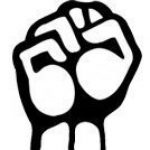Susan (not her real name) was granted leave to remain in Ireland three weeks before she took her own life. An asylum seeker from Nigeria, Susan was the parent of Irish citizen children. After she had her last child in 2004 she broke her back and suffered severe mental health problems. Several of her children were taken into care and the family was moved from one direct provision hostel to another. Towards the end of her short life, the hostel wanted her to move out; Susan had difficulties finding accommodation and eventually found herself in a B & B where she ended her life on Friday 18 September.
Unlike many other women residents of Ireland’s direct provision hostels, which can only be described as holding centres, Susan never contacted AkiDwA, the Migrant Women’s Network, whose members counsel at least four women asylum seekers each day (however, her case was brought to AkiDwA’s notice). ‘The women we see are in a very bad state’, says AkiDwA’s national director Salome Mbugua. ‘There are many attempted suicides – every week brings new tragedies.’
Many women asylum seekers have been living in these holding direct provision centres on a paltry ‘comfort allowance’ of €19 per week (not raised since it was first introduced in 2001) for several years. AkiDwA has been interviewing women living in direct provision and compiling their experiences. Although most are doing their best to give their children a life, conditions are horrific. ‘Women tell us about having to share rooms with other families, often having no common language with them, having to share bathrooms with men, having no privacy, having no access to food preparation even while pregnant or breast feeding, and having no facilities to leave their children even for a short time, making their lives unbearable’, says Mbugua.
Living in these hostels is often unsafe; men often prowl around the hostels and sexually propositioning the women, and young single men living in the hostels often endanger the safety of teenage girls and women. According to a report in the Galway Advertiser last August, some of the women seen by the Galway Rape Crisis Centre have experienced gang rape in their own countries and are trying to re-establish their trust in the world. Aoibheann McCann of the GRCC says the women ‘are at risk of re-victimisation and are at the mercy of pimps and traffickers. Back in their own countries they could have been raped by police or military so they are very distrustful and reluctant to report crimes to Gardai… I can see another Ryan Report on direct provision in about 20 years time. These hostels and hotels are run by the private sector and people are making profits. If you’re going to keep people in institutions it should be the State running it themselves.’
Yet the horrific conditions in direct provision hostels, run by the Reception and Integration Agency, which often moves women asylum seekers to other hostels when they complain, casting them as ‘trouble makers’, are largely hidden from view. Post-boom Ireland has little interest in their plight. According to Mbugua the recession has led to increased racist attacks, as communities do not want to engage with asylum seekers: ‘The women AkiDwA has spoken to tell us they feel Irish people don’t want them… classes are often run separately for asylum seekers and Irish people.’
How many more people like Susan need to take their own lives before we begin to pay attention?
